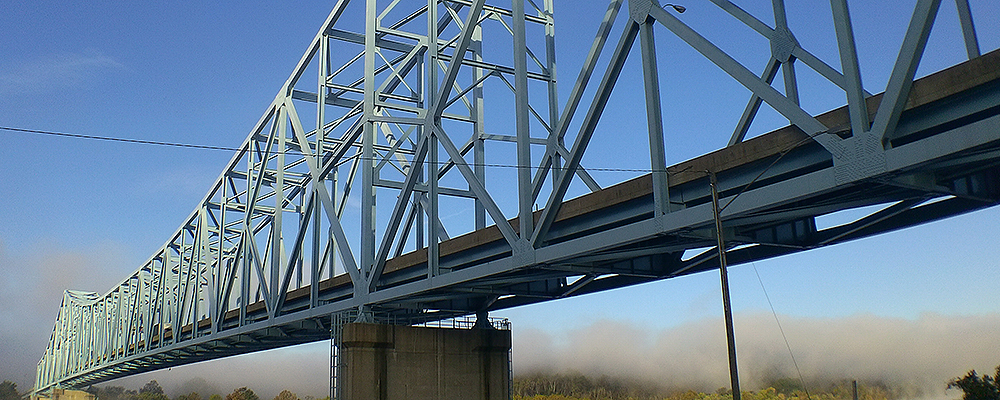Building structurally sound bridges, tunnels, manufacturing plants, water and sewage treatment facilities, warehouses, water tanks, and storage facilities is the first step. Keeping them protected from the destructive effects of corrosion is essential to maintaining their structural integrity.
The estimated global cost of corrosion is $2.5 trillion a year. When corrosion control practices are implemented, the cost of corrosion can be reduced by 15% to 35%.
Industrial paints and protective coatings provide excellent protection from salt air, chemicals, toxins, acidic and alkaline environments, and other corrosive situations. Industrial coatings should be selected based on the anticipated lifespan of the structure and its environment, including UV light, salinity, temperature and other factors.
As more sophisticated products were introduced, the industrial coatings trade became a highly technical profession. The Industrial Coating and Lining Application Specialist Certification program (also referred to as CAS) is based on the requirements of SSPC ACS-1/NACE 13, a standard published jointly in 2008 by SSPC and the National Association of Corrosion Engineers (NACE) International. ACS-1 defines training, experience, and demonstrable proficiency requirements a tradesperson must have in order to qualify for certification. The goal of the CAS is to strengthen the qualifications of the current workforce and lay the groundwork for development of a strong industrial painter workforce for the decades to follow. CAS certification meets all requirements of ISO 17024. Click here to learn more.
That’s why FSN’s contractors pride themselves of being CAS certified. We work on a wide variety of projects and want to share information about different types of structures.
Bridges
In 2013, there were 607,380 bridges in the United States. Approximately 30% of the bridges were structurally deficient or functionally obsolete. The annual direct cost of corrosion for highway bridges is estimated to be $13.6 billion. Structurally unsound bridges are a threat to public safety, which is why regulations covering bridges exist in many areas. In addition to the damage caused by a total or partial collapse, corroded bridges can lead to increased vehicle repairs, gas usage, and medical expenses, along with lost time and productivity due to delays and bridge closures. Effectively applied industrial paint and coatings can eliminate corrosion and extend the life of bridges.
Energy Facilities and Pipelines
Corrosion is a key factor in facility and pipeline failures, which can range from leaks to complete shutdowns. Due to regulatory requirements and overall costs of corrosion to energy companies, many have corrosion control and management programs in place. Proactively using industrial paints and coatings mitigates risk, reduces costs, and protects the environment from the accidental release of gas, crude oil, and processed liquids.
Wastewater Treatment Plants
Failure of wastewater treatments plants due to corrosion can release hazardous waste that may be difficult or impossible to contain. Regulatory requirements regarding plants, pipes, and equipment exist to eliminate sewage overflows and leaks. Eliminating corrosion with industrial coatings reduces equipment failures and unscheduled downtime. It also maximizes operating efficiency and minimizes loss of heat transfer capability.
Water Tanks
Elevated and ground-level water tanks are an essential part of most water distribution systems. Nearly 170,000 public drinking water systems are located throughout the U.S. Due to corrosion, there are an estimated 240,000 water main breaks per year. Selecting the best coating for maintaining water tanks and water systems, and having them properly applied keeps water flowing safely to community members.
By investing in properly applied industrial coatings, you ensure your structures remain safe. FSN has CAS certified contractors available to work on your projects. Contact us today to learn more.



